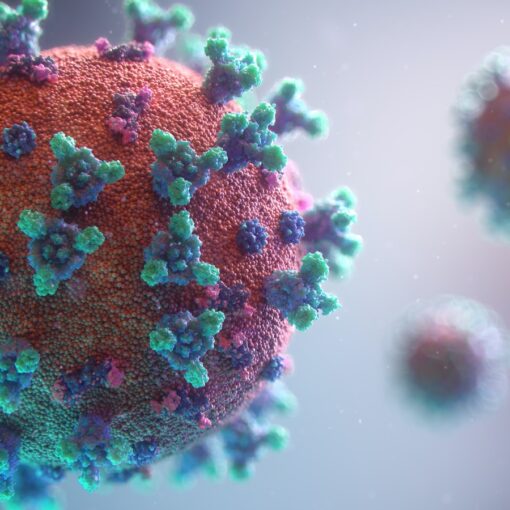Page Menu
Chlamydia is an infection that is transferred through sexual contact, and the most common symptom for this type of infection is a genital discharge. It is important to understand the signs or symptoms of chlamydia so that it can be treated right away.
Key Concepts and Top Takeaways
– Get tested regularly if you're sexually active to catch chlamydia early.
– Be aware of common symptoms: unusual discharge, burning sensation during urination.
– Understand that many people may not show symptoms; don’t ignore potential risks.
– Use condoms consistently to reduce the risk of transmission.
– Inform sexual partners if you test positive for timely treatment.
– Seek medical attention promptly if you suspect an infection.
– Complete the full course of prescribed antibiotics for effective treatment.
– Avoid sexual activity until you and your partner have completed treatment.
– Follow up with your healthcare provider to ensure the infection is cleared.
– Educate yourself about STIs to make informed decisions regarding sexual health.
Please Note: This post may contain affiliate links. If you click one of them, we may receive a commission at no extra cost to you. As an Amazon Associate, I earn from qualifying purchases.

Chlamydia is a sexually transmitted disease (STD) that can cause health problems in both men and women. It is caused by infection with the bacterium known as Chlamydia trachomatis and can be spread through vaginal, anal, or oral sex.
According to the Mayo Clinic, signs and symptoms of chlamydia in males may include penile discharge (fluid from the penis), pain or burning during urination, or testicular pain.
A bacterial infection that is often asymptomatic, Chlamydia can lead to all sorts of complications for the infected person. The disease is most prevalent in adolescents and young adults, but it doesn't discriminate. There are many causes of Chlamydia, including lack of condom usage during sex, promiscuity, and enlarged cervical tissue. The most common symptom is an abnormal discharge from the vagina or penis.
Chlamydia is the most common sexually transmitted disease in the US, with over three million new cases every year. It's important to note that it's easy to be infected with chlamydia without knowing, because many people don't have any symptoms or show only mild ones. Most people who are infected don't know they have it because there are not many noticeable symptoms. Many Americans are unaware of how easily chlamydia can spread between sexual partners.
It’s often asymptomatic and has no obvious symptoms, so it can go undiagnosed for years. If left untreated, chlamydia can lead to other complications such as pelvic inflammatory disease, infertility, and ectopic pregnancy. The best way to prevent getting chlamydia or any other STI is by practicing safe sex and getting tested regularly.
Chlamydia is a sexually transmitted disease that can be cured with antibiotics. It spreads through sexual contact, and it is common for people not to know they have it until they experience symptoms such as inflammation and discharge. Symptoms can take weeks or months to manifest, so it is important to get tested if you have had unprotected sex. Chlamydia can lead to fertility problems in women and men and should be taken seriously.
Symptoms of Chlamydia
Chlamydia is a sexually transmitted infection that can cause significant damage to the urinary tract and reproductive system. The following are possible symptoms of chlamydial infection:
-Painful urination, vaginal discharge, or bleeding in women.
-Bleeding between periods in women.
-Swollen testicles in men.
-A burning sensation when urinating in men and women.
-Painful bowel movements in both sexes.
Many people are unaware that genital discharge can be a symptom of Chlamydia. The discharge is not only unpleasant, but it also indicates an infection that needs to be taken care of as soon as possible. There are other symptoms associated with this bacterial infection, including yellow or white vaginal discharge, pain during intercourse, burning sensation when urinating, and irregular periods. If left untreated, the infection may spread to the uterus or fallopian tubes.
In recent years, gonorrhea and chlamydia have been on the rise, with an increase in reported cases. These two bacterial infections are transmitted through sexual contact with a person who has a genital discharge. Chlamydia is more common in women than men, and can lead to serious complications, including infertility. It is important for any individual experiencing a discharge from their genitals to visit a doctor right away to get diagnosed and treated.
People who are dealing with a case of chlamydia can experience burning during urination. This has been known to be one of the most common symptoms in the early stages of this sexually transmitted infection. Burning during urination can also happen when there is a urinary tract infection or another type of bladder problem. The burning sensation will not always be present, but it may worsen when exercise, sex, or other activities are attempted.
Testicular pain is a common symptom of a sexually transmitted disease, Chlamydia. It can be mistaken as a symptom of gonorrhea or prostatitis and lead to incorrect diagnoses. A diagnostic test can rule out these diseases and identify if it is caused by chlamydia.
In the case of an infection from Chlamydia, symptoms may include fever, discharge from the rectum or vagina, shaking chills, nausea, and pain in the lower back.
Testicular pain is a common symptom of chlamydia, which is an STD. Such pain can be felt as a dull ache or irritation in the testicle. It may also occur during sexual intercourse or after ejaculation. Men who are experiencing this type of pain should take immediate action by visiting their doctor for testing and treatment.
Causes of Chlamydia
Chlamydia is one of the most common STDs in the world and can be spread through vaginal, anal, and oral sex. The infection is spread through contact with another person's infected semen or genital fluids. The Centers for Disease Control and Prevention (CDC) estimates that there are about 3 million new cases of chlamydia each year in the United States.
All sexually active people are at risk of getting chlamydia, regardless of their gender or sexual orientation. It can be passed from one person to another through vaginal, anal, or oral sex. Symptoms can include pain or discomfort during urination or intercourse. Along with these symptoms, female patients might experience abnormal vaginal discharge and pelvic pain.
Chlamydia is one of the most common sexually transmitted diseases (STD) in the United States, with about one out of every 10 people between the ages of 15 and 30 being infected. It's caused by a bacterium that is transmitted through sexual contact or from mother to child during delivery. In men, chlamydia can cause inflammation at the urethra, prostate gland, bladder, and epididymis.
Chlamydia is an infection that can affect the urinary tract, genitals, and eyes. Chlamydia trachomatis is a type of chlamydia that can cause infections in the genital region. However, this strain of chlamydia is uncommon in Western countries. It often affects newborns when they are born to mothers who have chlamydia. Fortunately, most cases of chlamydia are easily treated with antibiotics.
The disease Chlamydia is caused, in part, by the bacterium Chlamydia trachomatis. The infection can be transmitted sexually or through contact with dirty surfaces. If left untreated, this infection can lead to pelvic inflammatory disease, epididymitis, and infertility in males.
Chlamydia can be transferred through oral, anal, or vaginal sex. When left untreated, it will cause higher rates of infertility in women. Young adults are more susceptible because they are not aware of the risks associated with promiscuity. As a result, they are often less likely to use protection during sexual intercourse.
A study by the CDC shows that 80% of all chlamydia infections are in women between the ages of 15-24 years old.
It can cause genital and rectal infection in both men and women. It is typically spread through unprotected sex and contact with infected fluids. The lifetime risk of infection in the United States is about 1 in 4 for females and about 1 in 10 for males. Those numbers increase to 1 in 2 for females and 1 in 4 for males if they have more than one partner.
Promiscuity can be a cause of chlamydia, which is an infection that is the most common sexually transmitted disease in the United States. Most people who are infected with chlamydia do not know it because they have no symptoms. Left untreated, the bacteria can create scar tissue inside the uterus, urethra, or rectum, which can lead to long-term pelvic pain and infertility.
A leading cause of chlamydia that is often overlooked by healthcare professionals is enlarged cervical tissue. Enlarged cervical tissue, or cervical ectropion, is the result of abnormal genital secretions, usually as a symptom of hormonal changes. This leads to some women's cervixes becoming covered with patches of skin which resemble small bumps. It can also lead to an increased risk of infection because these patches can trap bacteria and viruses on the surface.
There are many possible causes of Chlamydia, but enlarged cervical tissue is one specific cause that requires immediate attention. Cervical tissue can become enlarged due to a number of reasons including infection with HPV or HSV, trauma, or repeated exposure to sperm. Signs of an enlargement may include vaginal discharge and painful urination. The best way to lower the risk of developing this condition is to avoid unprotected sex, have routine Pap smears, and always wear condoms.
Risk Factors for Chlamydia
Chlamydia is a sexually transmitted disease caused by the bacteria Chlamydia trachomatis. It is most common in young adults and older teenagers, with infections occurring most often among unmarried people. There are no symptoms of chlamydia, which is why it's difficult to diagnose unless you get screened for the infection. Like other STDs, chlamydia can increase your chance of contracting HIV and getting hurt during sex.
Chlamydia is a sexually transmitted disease (STD) caused by the bacterium, Chlamydia trachomatis. Chlamydia can be spread to others by vaginal and anal sex, oral sex and genital contact without penetration. It is also possible to get chlamydia from exposure to infected fluids through the eyes, mouth, rectum or urinary tract.
Chlamydia is an STD. It is transmitted through unprotected vaginal, anal, or oral sex with someone who has chlamydia. Chlamydia can infect women and men. It is possible for an infected person to have the infection but not show any symptoms, so they may not know they are infected at all. The infection can also go away on its own without treatment in some people.
Complications From Chlamydia
Having Chlamydia is not the worst thing that can happen to a person, but it can cause complications that are more severe than one would think. The good news is that there are treatments available to cure Chlamydia, but not all cases are easily cured. Complications of untreated Chlamydia include inflammation of the reproductive organs, cervical cancer, fever, and abdominal pain.
While it is hard to get an exact number of the people who are diagnosed with chlamydia each year, there are 6 million cases annually in the US. Chlamydia is a very common sexually transmitted disease that can be easily treated with antibiotics. Complications that may arise from untreated chlamydia are infertility, ectopic pregnancy, pelvic inflammatory disease, and chronic pain. It may also cause rectal inflammation if the infection was contracted through anal sex.
Pelvic inflammatory disease (PID) is the result of an infection that spreads from the cervix into the uterus, fallopian tubes, and/or ovaries. According to the Centers for Disease Control and Prevention, PID is the most common gynecologic hospitalization for women between 15-24 years old. The most common cause of PID is Chlamydia infections.
Pelvic inflammatory disease is a dangerous complication that can arise from Chlamydia, which is the most common bacterial STI in the United States. It can also be contracted through having vaginal, anal, or oral sex. Aboriginals are at an even greater risk for this condition because of their immune system response to the bacteria. The common symptoms of pelvic inflammatory disease are abdominal pain, fever, nausea and vomiting, and abnormal discharge.
Recent studies have shown that infertility is a possible complication for people infected with Chlamydia. This sexually transmitted infection can cause inflammation of the uterine lining, which in turn can lead to endometriosis, pelvic inflammatory disease (PID), and the most severe form of ectopic pregnancy. One in every 10 people diagnosed with Chlamydia becomes infertile during their lifetime.
Infertility is often the result of untreated infections, but Chlamydia is one of the most common sexually transmitted diseases. While not everyone who has an infection will go on to develop infertility, it is important to speak with a doctor promptly if you notice any symptoms, so they can get you diagnosed and treated. Chlamydia is preventable if people use two types of protection during sex. If left untreated, there are possible complications that include infertility, ectopic pregnancy, and pelvic inflammatory disease.
Ectopic pregnancies are often the result of a complication from Chlamydia. Chlamydia is a sexually transmitted disease that can cause infertility in both men and women if left untreated. Symptoms of Chlamydia include burning during urination, genital discharge, swollen testicles, and painless sores on the mouth or genitals. If left untreated for too long, ectopic pregnancy can occur, which is dangerous because it damages the fallopian tubes and ovaries.
An ectopic pregnancy is just one of the many complications that can happen when a person has chlamydia—a sexually transmitted infection. An ectopic pregnancy is when the fertilized egg attaches to the wrong place in the mother’s body, usually on her fallopian tubes, which are found in the abdomen on either side of the uterus. This is considered an emergency situation because it can cause life-threatening damage to both the mother and baby.
Treatment for Chlamydia
For most people, treatment for chlamydia is taken as a prescription. Although there are treatments available over the counter, they are not as effective as those prescribed by doctors. A common treatment for Chlamydia is doxycycline, which may cause some side effects, including nausea and vomiting. Individuals should contact their doctor to find out more about their options for treatments.
Treatment of chlamydia is typically done with prescriptions.
It is important to be aware of the signs and symptoms of chlamydia, since most individuals do not know they have it until they notice pain and inflammation. It is also important to get tested regularly, since there are many people who are unaware that they have it and can unknowingly spread it to others.
Many people are surprised to hear that Chlamydia is the most common sexually transmitted infection (STI) in the U.S. It is estimated that 1 in 2 sexually active young people will contract it sometime in their lifetime, according to the Centers for Disease Control and Prevention (CDC). Every year, there are about 1.5 million new cases of Chlamydia reported to the CDC, with a total of over 3 million Americans currently infected with this disease.
Many sufferers of Chlamydia find it difficult to get treatment for this sexually transmitted disease. For those who can afford it, the most common form of treatment is antibiotics. However, as time progresses and chlamydia becomes more resistant to antibiotics, many doctors are becoming less inclined to prescribe them as a first line of defense against this disease.
Many people who are diagnosed with chlamydia are prescribed antibiotics to go with their treatment. However, there has been little research done on the effectiveness of antibiotics for this type of infection. One study found that only 24% of patients with chlamydia had detectable levels of bacteria at six months after treatment, which indicates that the infection may not be fully cured. Other studies show that even though they can help patients feel better, antibiotics do not help prevent reinfection.
The use of antibiotics as a treatment for chlamydia is controversial and often the subject of debate. Experts argue that there is no evidence to support the claim that antibiotics can combat this disease, and that they may be useless in treating it. On the other hand, others argue that they may have a role in fighting off the bacteria responsible for this illness. In some cases, those taking antibiotics as a preventative measure may develop diarrhea as a side effect from taking these drugs.
Common Questions About Chlamydia
How can you tell if you have chlamydia? Chlamydia is a sexually transmitted disease, which can be prevented by getting tested and using protection. If you notice any of these symptoms, it may be a sign that you have contracted the virus: pain when urinating, a burning sensation after urinating, lower abdominal pain, abnormal vaginal discharge, itching around the vagina or anus.
What can chlamydia cause? Chlamydia is a sexually transmitted disease that can cause pain and discomfort in the penis. Chlamydia can also make it difficult to urinate and can lead to abdominal pain and fever, as well as infertility problems in females. It’s important to get tested for this STD because it could lead to many serious complications if left untreated.
Can chlamydia go away on its own? There is no magical cure for the sexually transmitted infection, but you can take antibiotics to reduce your symptoms and prevent spreading it to others. Chlamydia, which is caused by a bacteria called Chlamydia trachomatis, causes problems in both men and women. When left untreated, the infection can lead to infertility in women and erectile dysfunction in men.
How long does it take for chlamydia to go away? Many believe that chlamydia is quickly cured by antibiotics, but the truth is that it takes anywhere from 1-3 weeks to cure with treatment. The common misconception is likely due to the fact that most symptoms of the disease go away after a few days. However, some symptoms such as discharge and pain can last for up to 3 weeks or more.
Does chlamydia have a smell? It is common for people to believe that if their body odor smells, then they have a sexually transmitted infection. Chlamydia is a bacterial infection that mostly infects women and men under the age of 25. It is a common misconception, however, that a person can smell infected with chlamydia. In truth, bacteria often emit odors when they thrive in moist environments such as the genital area.
Can I test myself for chlamydia at home? Tests for chlamydia can be taken in the privacy of your own home. This is a sexually transmitted infection that has been increasing in recent years and affects one out of every 100-150 people under the age of 25. The infection can be picked up from sex, but also through oral sex and anal sex. Testing kits work by detecting antibodies to the bacteria that cause the infection.
There is not a single good reason for an individual to take the time and put themselves at risk by testing themselves for the STD Chlamydia at home.
If you test positive, you will need to get examined and treated right away. If left untreated it can cause serious health complications and increase your chances of developing other STDs which could also cause fertility problems in women and men.
Can you have chlamydia for years without knowing? One of the most common STDs, Chlamydia, is caused by bacteria that can infect your reproductive organs if you have unprotected sex. Symptoms are mild or nonexistent, which is why it's so easy to be left unaware of the infection. What's worse is that it can last for years without treatment if left untreated. So what are the signs?
Is chlamydia a virus or bacteria? Chlamydia is a sexually transmitted disease caused by bacteria and not a virus. It is transmitted through vaginal, anal, or oral sex and might lead to serious complications if left untreated. Chlamydia can be cured with antibiotics, which should be taken for as long as directed by the doctor.
Chlamydia is the most common sexually transmitted infection in the U.S. with around 2 million cases reported annually. The bacteria that cause chlamydia, Chlamydia trachomatis, is typically classified as a bacterium, but recently there has been debate about whether it should be reclassified as a virus because of genetic similarities between the bacteria and viruses. Because these infections are so widespread, there are significant implications for public health if it turns out to be a virus.
What happens if chlamydia is left untreated? Chlamydia is a sexually transmitted infection that, if left untreated, can lead to infertility. Chlamydia is caused by a bacterium that is most easily passed from person-to-person during vaginal, anal, and oral sex. In men, chlamydia most often causes discharge from the penis or a burning sensation. In women, symptoms most often appear as a discharge from the vagina or burning pain during urination.
Chlamydia is a bacterial infection that can be left untreated or lead to complications such as pelvic inflammatory disease. In female patients, the bacteria can lead to infertility by scarring the fallopian tubes and ovaries. Males may have an increased risk of contracting HIV if the infection remains untreated. Untreated chlamydia can also lead to ectopic pregnancy in females and chronic prostatitis in males.
Chlamydia is a bacterial infection that causes inflammation of the urethra in males and cervix in females. When left untreated, it can develop into pelvic inflammatory disease (PID) which is an infection of the female reproductive organs, or in rare cases, ascend to the lungs or eyesight.
If chlamydia goes undetected for too long, it can lead to more serious infections like PID.
In conclusion, chlamydia is a common STD – and it's one which can be easily transmitted without a person even realizing. The current rates of diagnosis are increasing, and this is a major concern. It's best to get tested for chlamydia if you may have been exposed, but make sure to wear protection while doing so.

Kevin Collier is a seasoned health writer at Otchut.com, specializing in over-the-counter medicines, common medical ailments, and general health topics. With a background in healthcare and a passion for making medical information accessible, Kevin aims to empower readers with knowledge to make informed health decisions. When he's not writing, he enjoys researching the latest in health trends and advocating for wellness in his community.





